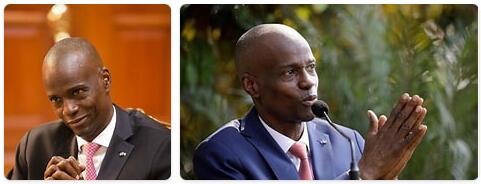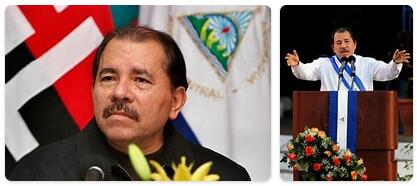Haiti Political Reviews
Haiti is the land of contrasts, a beautiful island in the Caribbean, fascinating culture and the world’s first free black republic. At the same time, the country is primarily linked to natural disasters, distress and poverty, military dictatorship, a failed state. It’s no wonder.
Nearly 80 percent of the population of just under 10 million live below the poverty line, and about 70 percent of Haiti’s workforce is unemployed. The infrastructure is in very poor condition and 98 percent of the land is deforested. At the top of this, Haiti was to experience an earthquake in January 2010, which left entire cities and half the capital in gravel, is almost too much to cover. The reconstruction process is underway, although progress is slow. The population is increasingly frustrated by the lack of visible results following the record-breaking international engagement following the earthquake. In October 2016, Haiti was struck once again by a devastating natural disaster when Hurricane Matthew shattered large parts of the southern part of the island. Infrastructure, houses, schools, roads, water systems, crops and livestock were lost.
Political situation
Historically, Haiti has never experienced long periods of political stability. It is one of the countries in the world that has had the most coups. Politicians in general have little or no credibility with the people, and Haiti is one of the countries in the world with the lowest turnout. Corruption is pervasive at every level, and in addition, many people perceive politics as dangerous, which also prevents more women from entering politics.
Haiti’s last elected president was inaugurated on February 7, 2017, after several rounds of postponed presidential elections. The first attempt to elect a successor to President Martelly was October 25, 2015, at the same time as the election of mayors, senators and congressmen. The October 25 presidential election was canceled due to charges of extensive electoral fraud. Former President Martelly’s term expired in February 2016, and the National Assembly therefore elected Jocelerme Privert as interim president for a transitional government that was set to govern and plan a new presidential election within the next 120 days. Finally, the election was held on November 20, 2016.
Jovenel Moise won with 55% of the vote, in an election in which only 20% of the population participated. Moise was elected by former President Michel Martelly to represent their political party PHTK (Party Haiti Tèt Kale which in Norwegian can be translated as the Haitian Party for Bald) and had no previous political experience.
UN in Haiti
In 2017, the UN peacekeeping force, MINUSTAH, has been present in Haiti for 13 years according to Countryaah. MINUSTAH entered the country in 2004 after President Aristide fled under dramatic circumstances and the country was approaching a civil war-like state. Aristide himself believes that the United States was behind this coup and lived in exile in South Africa until returning to Haiti in 2011.
Prior to the 2010 earthquake, the UN force comprised 7,000 soldiers, 1,900 police officers and 500 UN civilian personnel from 45 countries. The UN force was increased by 2,000 soldiers and 1,500 police officers after the earthquake. The UN’s mandate is to observe and secure the establishment of democratic institutions, the training of a civilian police and the support of reform of the legal system. MINUSTAH has been instrumental in stabilizing the security situation in the large slums where criminal gangs operate.
However, MINUSTAH has little support among the people of Haiti who are perceived by many as a money machine that the elite makes money from by renting houses, hotel rooms and cars. UN soldiers have been involved in several sexual assault scandals and are visible guests on the coastal beaches reserved for foreigners and Haiti’s elite. There is little doubt that the source of the cholera epidemic that devastated in October 2010 came from the Nepalese UN base, which used a nearby river to dump its own waste. The locals in Artibonite also use the same river for bathing, washing clothes and as a drinking water source. So far, over 9,000 people have died as a result of the cholera epidemic, and over 600,000 have been ill. The UN refuses to take responsibility and has rejected claims for compensation from victims and their families based on UN immunity.
In April 2017, the UN Security Council decided that MINUSTAH should withdraw from Haiti by October 15, 2017. At the same time, a new organization, The United Nations Mission for Justice Support in Haiti (MINUJUSTH), was set up with a mandate to assist Haiti’s government to strengthen judicial security and justice systems, support and development of the national police forces, and observation of human rights.
Social Report
Haiti is in many ways a bipartisan country, where the economic elite in the country, about five percent of the population, own most of the land, factories and businesses. They have a monopoly on the most important commodities consumed: rice, oil, eggs and building materials. In recent years, a number of luxury hotels have been built in Port-au-Prince, where Haiti’s elite and foreign business and aid people reside. Haiti’s elite mixes little with the rest of the population, but they cooperate with the government of all times. Values created are not distributed to the poor, black majority, but sent out of the country. Haiti is broken after many years of this system. In 2016, Haiti was ranked 163 out of 186 countries in the UNDP’s Human Development Index.


